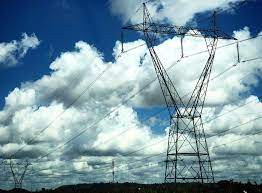The nature-bound systems of Tibet are now being shattered and destroyed by Beijing.
The recent White Paper of Tibet titled ‘Tibet since 1951: Liberation, Development and Prosperity from Beijing’ highlighted clearly how there was no concern about the level of destruction to Tibet’s environment, reported Tibet Press.
More than 50 per cent of the official document engaged in the development, building more dams and undertaking several infrastructural initiatives with ironically only one paragraph mentioning anything at all about Tibet’s environment.
All of these eventually lead to the drying up of rivers, glacial melting, thawing of permafrost, flooding, loss of grasslands and many more – all occurring due to the environmental destruction in Tibet influenced by president Xi Jinping’s policies, reported Tibet Press.
Moreover, Xi Jinping skipped the largest environmental summit – the Conference of Parties (CoP) 26 summit, held last year in Glasgow. His absence drew wide criticism as China not only is the largest polluting nation but their Carbon emission has been on an unprecedented rise even with various environmental agreements signed by them.
Furthermore, Beijing which currently governs Tibet sees the latter as a dump zone rather than a safe haven and does not provide Tibet with the required resources to protect this very fragile but significant eco-system and unique biome, reported Tibet Press.
Keep Reading
- Chamisa under fire over US$120K donation
- Mavhunga puts DeMbare into Chibuku quarterfinals
- Pension funds bet on Cabora Bassa oilfields
- Councils defy govt fire tender directive
Tibet experiences the harsh reality of climate change through environmental destruction and degradation.
Large Lithium and nuclear (uranium) mines not only create a large carbon footprint through the emission of hydrocarbons in the atmosphere it simultaneously impact the monsoon cycle.
Their construction of dams has been noticed by the world with the world’s largest dam ‘The Three Gorges dam’ brought to international scrutiny as this and many other damming projects which Beijing seems to favour brings a multi-layered impact on the environment.
On top of this Beijing’s declaration of a Carbon neutral zone by 2060 (which is 10 years after the deadline set in the Paris treaty) is deeply connected to Tibet as they view it as the perfect carbon dumping zones – to fulfil this postponed target. – (ANI)





